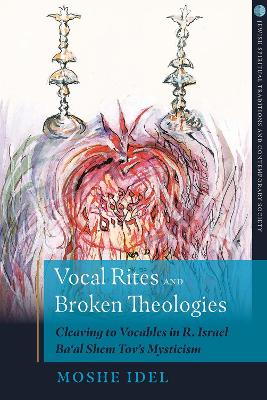Jewish Spiritual Traditions and Contemporary Religion
1 total work
Vocal Rites and Broken Theologies deals with the central practices of the founder of Hasidism, Rabbi Israel Ba'al Shem Tov--known as the Besht--and its sources in the Safedian Kabbalah of Rabbi Moses Corovero. These include the loud pronunciation of the vocables during prayer, study of the Torah and eventually profane speech, as conducive to some form of union with the divine. Many traditions in his name allow the reconstruction of the specific importance of these vocal rituals, including an architecture of the "Hebrew" sounds. From the historical point of view, Moshe Idel shows that some forms of Greek/Hellenistic magic reached the Muslim culture, and were translated into Hebrew in the 13th century, thus enriching Kabbalistic views, especially in Renaissance Kabbalah and in the Safedian Kabbalah of Cordovero and his many followers. They have been adopted in Hasidism by its founder, and were put in relief. Provided the linguistic nature of this practice, it was adapted by popular circles in the mid-18th century, which conjugated it with a variety of theological motifs stemming from different types of theologies, which have been adapted to the vocal practices. This less theological and more ritual linguistic practice is an explanation for the wide adoption of Hasidism by popular circles and its ensuing success.
